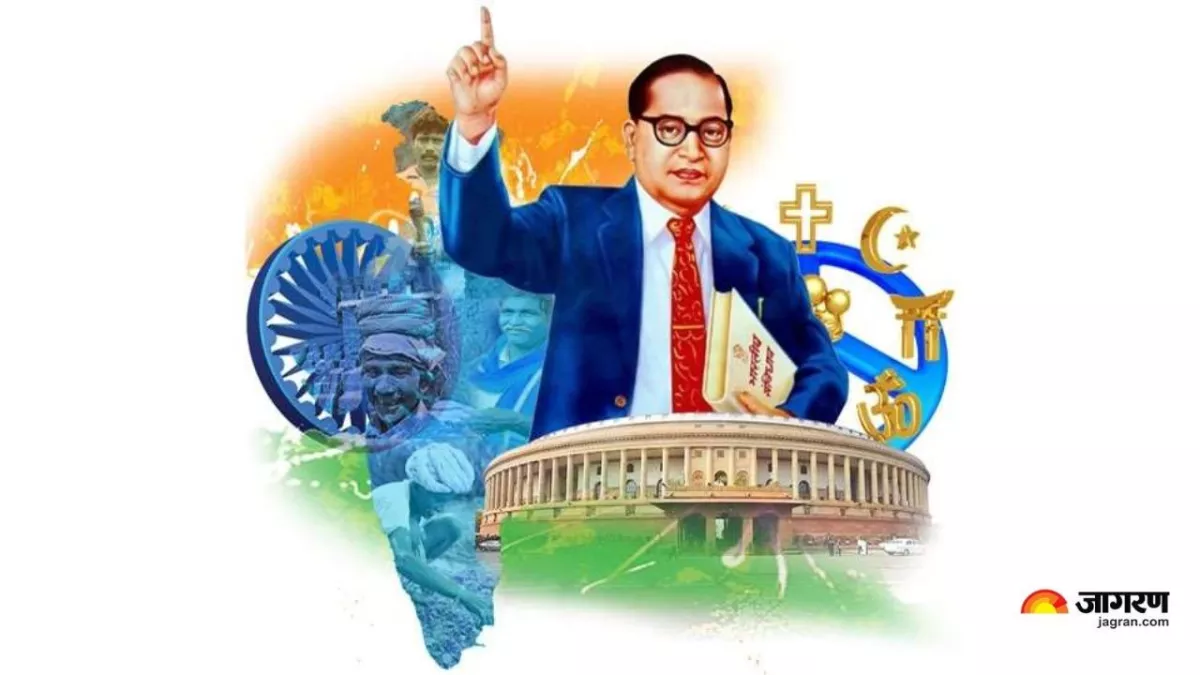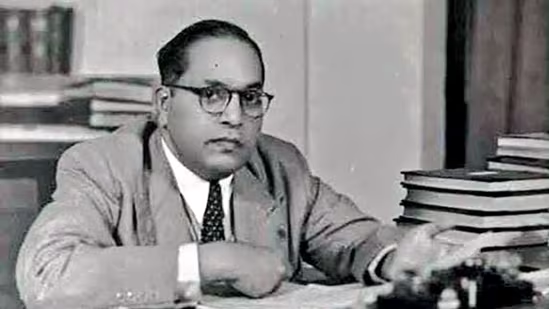Bharat Ratn Dr. B R Ambedkar popularly known as Babasaheb, was an eminent jurist, economist, well-known politician and great social reformer who inspired the Modern Buddhist Movement and campaigned against social discrimination against Untouchables, while also supporting the rights of women and labour. He was Independent India's first law minister and the principal architect of the Constitution of India. However, Dr. Ambedkar is recognised as ‘Father of the Indian Constitution’.
Dr. Bhimrao Ambedkar (1891-1956) was born on 14 April 1891 in Mhow Cantonment, Madhya Pradesh. He completed his primary schooling in Satara, Maharashtra and completed his secondary education from Elphinstone High School in Bombay. His education was achieved in the face of significant discrimination, for he belonged to the Scheduled Caste (then considered as ‘untouchables’). In his autobiographical note ‘Waiting for a Visa’, he recalled how he was not allowed to drink water from the common water tap at his school, writing, "no peon, no water".
Dr Ambedkar graduated from Bombay University in 1912 with a B.A. in Economics and Political Science. On account of his excellent performance at college, in 1913 he was awarded a scholarship by Sayajirao Gaikwad, then Maharaja (King) of Baroda state to pursue his M.A. and Ph.D. at Columbia University in New York, USA. His Master's thesis in 1916 was titled “The Administration and Finance of the East India Company”. He submitted his Ph.D. thesis on “The Evolution of Provincial Finance in India: A Study in the Provincial Decentralization of Imperial Finance”.
After Columbia, Dr. Ambedkar moved to London, where he registered at the London School of Economics and Political Science (LSE) to study economics, and enrolled in Grey’s Inn to study law. However, due to lack of funds, he had to return to India in 1917. In 1918, he became a Professor of Political Economy at Sydenham College, Mumbai (erstwhile Bombay). During this time, he submitted a statement to the Southborough Committee demanding universal adult franchise.
In 1920, with the financial assistance from Chatrapati Shahuji Maharaj of Kolhapur, a personal loan from a friend and his savings from his time in India, Dr. Ambedkar returned to London to complete his education. In 1922, he was called to the bar and became a barrister-at-law. He also completed his M.S.c. and D.S.c. from the LSE. His doctoral thesis was later published as “The Problem of the Rupee”.
After his return to India, Dr Ambedkar founded Bahishkrit Hitkarini Sabha (Society for Welfare of the Ostracized) and led social movements such as Mahad Satyagraha in 1927 to demand justice and equal access to public resources for the historically oppressed castes of the Indian society. In the same year, he entered the Bombay Legislative Council as a nominated member.




The mission statement of the society is to strengthen, support, and unify the social work profession, to promote the development of social work standards and practice, and to advocate for social policies that advance social justice and diversity for scheduled caste of the state.
Our social values lie in the happiness of our citizens and appreciation from our members of our organization. As one of most important driving forces in developing modern society, social organizations have become the backbone of the communities they belong to. To build a happy and harmonious society, it is a worthwhile attempt for us to build a happy organization. We strive to fully undertake our social responsibility, building a happy and prosperous society, leading as an example of a happy organization, and ultimately achieving the shared vision of 'family'.
Awareness campaigns against atrocities
Celebrations on the occasion of Dr. Ambedkar Jayanti and Nirwan Diwas.
Remembrance on the occasion of Dr. Ambedkar Nirwan Diwas.
Seminars and Meetings on various social and other issues